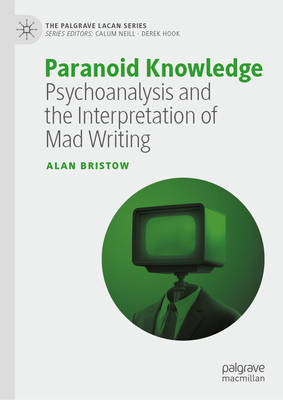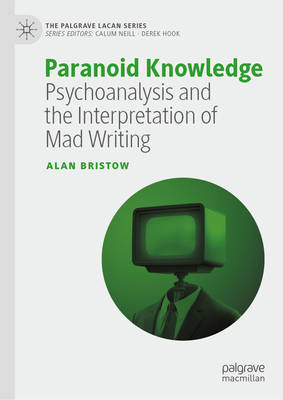
- Afhalen na 1 uur in een winkel met voorraad
- Gratis thuislevering in België vanaf € 30
- Ruim aanbod met 7 miljoen producten
- Afhalen na 1 uur in een winkel met voorraad
- Gratis thuislevering in België vanaf € 30
- Ruim aanbod met 7 miljoen producten
Zoeken
€ 42,45
+ 84 punten
Omschrijving
This book inserts Lacanian theory into contemporary debates within the emerging interdisciplinary field of 'Mad Studies' via an analysis of psychotic writing. The author questions what psychoanalysis can offer a progressive, emancipatory means for engaging madness. Taking the Memoirs of Daniel Paul Schreber and the Exegesis of Philip K. Dick as the primary sites of investigation, the book examines how the written representations of paranoid psychosis have historically been exploited to further clinical insights and forms of social critique. Paranoid Knowledge reveals how Lacan's theorisations of the sinthome, the universal condition of psychosis and the overdetermined nature of any interpretation provide theoretical alliance to Mad Studies and critical mental health endeavours. By focusing on the taut interrelation between knowledge production, diagnostic structure and technological development, Bristow demonstrates how an individual's madness can harness, reformulate or channel broader socio-cultural themes. As such, the author contends that psychosis can be shown to have value beyond mere pathology and may offer us a privileged position to grasp psychosocial processes. This book will offer fresh insights for students and scholars of psychoanalysis, critical psychiatry, literary theory, philosophy, and cultural studies.
Specificaties
Betrokkenen
- Auteur(s):
- Uitgeverij:
Inhoud
- Aantal bladzijden:
- 181
- Taal:
- Engels
- Reeks:
Eigenschappen
- Productcode (EAN):
- 9783031997341
- Verschijningsdatum:
- 28/03/2026
- Uitvoering:
- Hardcover
- Formaat:
- Genaaid
- Afmetingen:
- 148 mm x 210 mm

Alleen bij Standaard Boekhandel
+ 84 punten op je klantenkaart van Standaard Boekhandel
Beoordelingen
We publiceren alleen reviews die voldoen aan de voorwaarden voor reviews. Bekijk onze voorwaarden voor reviews.







